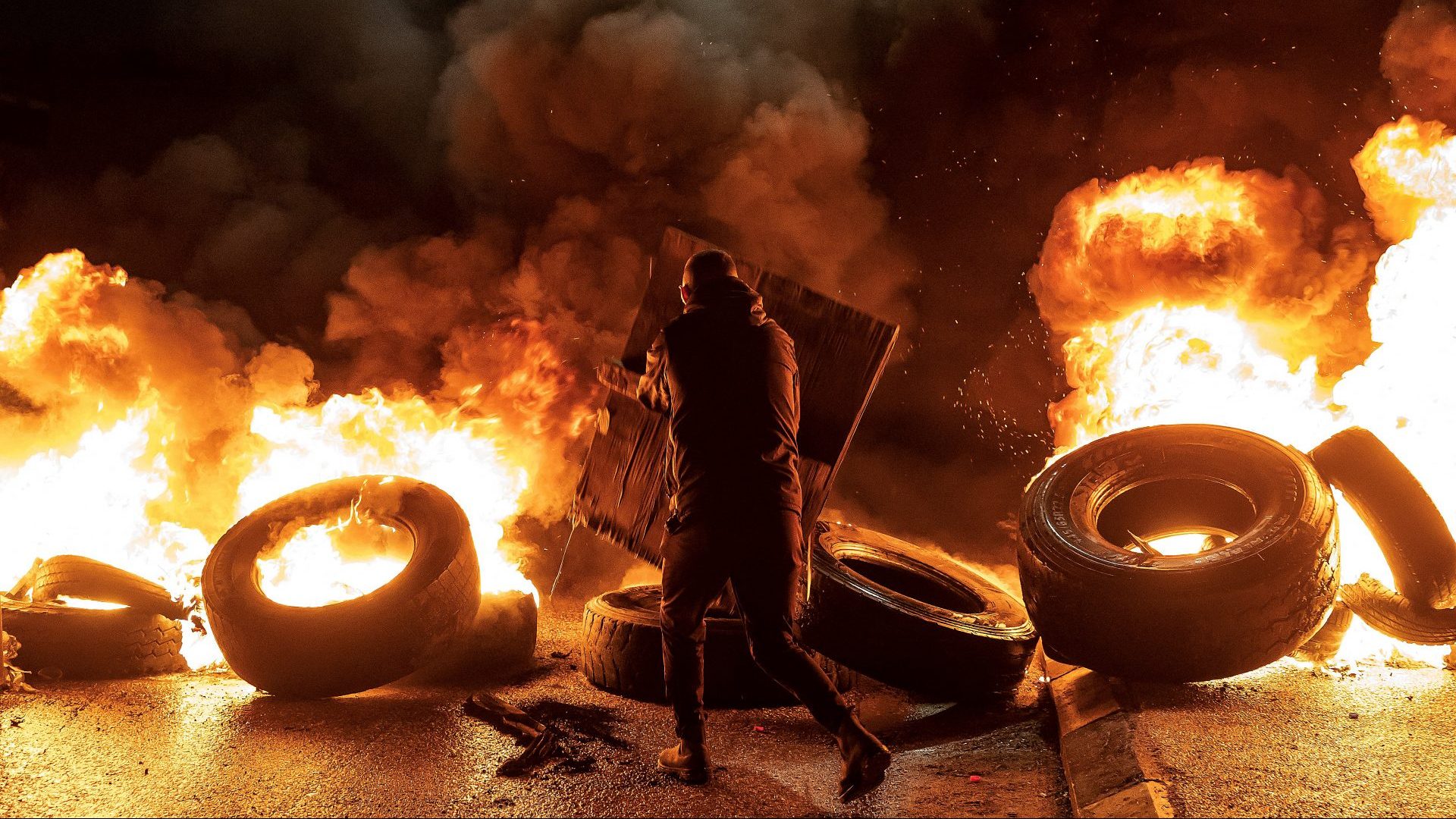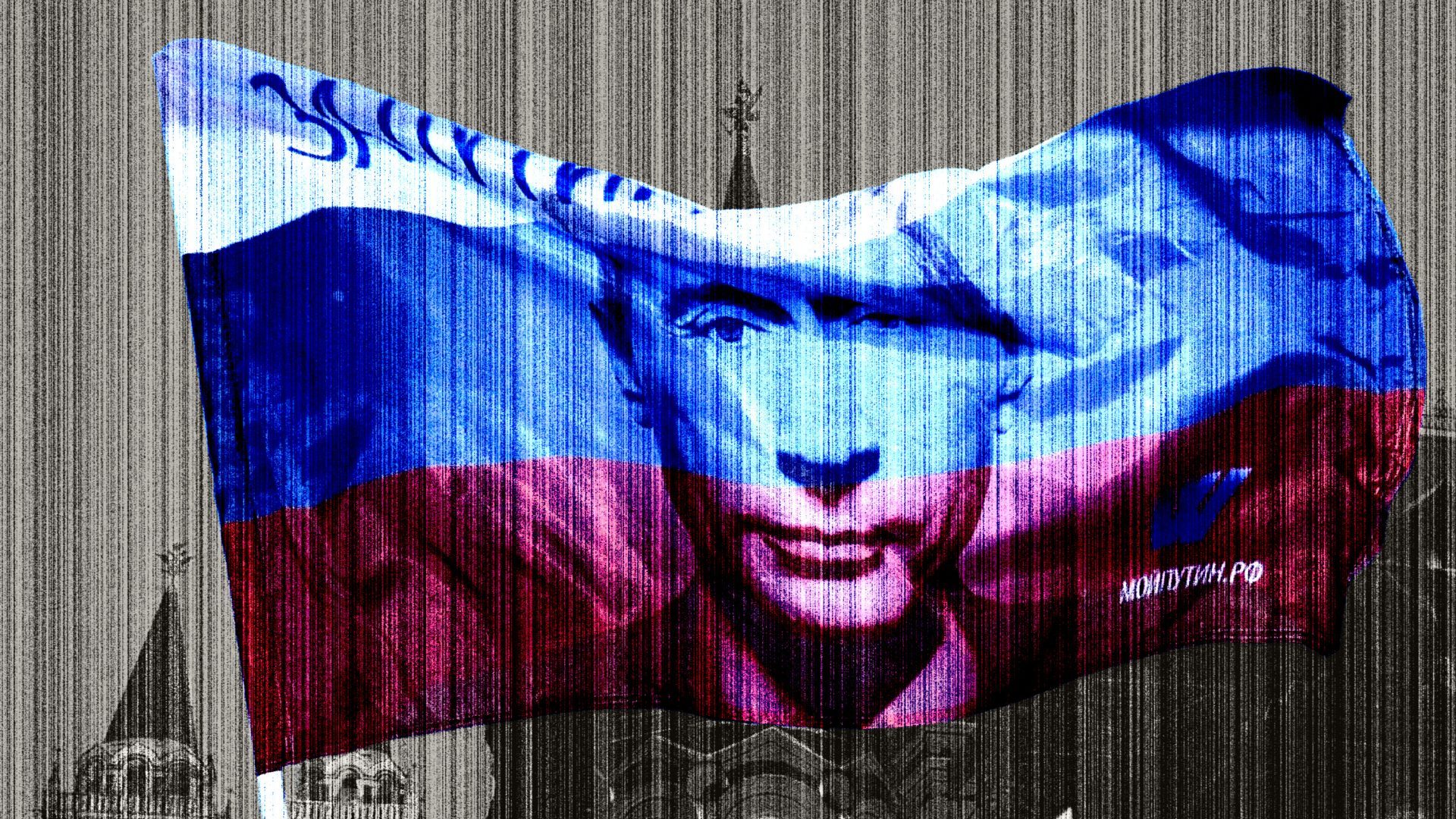In her white headscarf and black abaya, Halima Jaber Nawaja is composed and matter-of-fact as she sits in front of her home at Susiya in the West Bank’s rocky, windswept South Hebron Hills, recalling the night when the Israeli settlers came to tell her family to leave or be killed.
At around 11pm, according to the family, a civilian car drew up outside. Five armed men in uniform got out and entered the house, photographing and “throwing things around”. Halima said they had taken her husband, Ahmad, and his brother, Mohammed, and started to beat them. As is increasingly the case in such episodes, the status of the assailants was unclear – they could have been members of an Israeli settlement security unit, or off-duty reservists from the settlements who had decided to don their uniforms for the night. Or both.
Either way, she said: “We couldn’t do anything because there was a soldier who pointed a gun at us. They told [Ahmad and Mohammed] that they had 24 hours to leave or they would be shot.” Panicking, one of her two young daughters developed a nosebleed. The other one threw up.
Seen in isolation beside the hideous carnage perpetrated by Hamas and its followers on Israeli civilians on October 7, and the subsequent unparalleled toll of death and destruction visited on Palestinians in Gaza, the incident may seem insignificant. But it is part of a trend that has been growing over the past six weeks: the increased use of force against Palestinians by Israeli settlers. This violence is largely unchecked. Many Palestinians think it is being supported by the Israeli military.
It has also caused mounting concern within the US administration. Increased settler violence threatens to open a second front in this bloody war and is making a two-state solution an even more distant prospect. But it is also a challenge to the EU and to individual European governments, which have been trying to protect some of the most vulnerable Palestinian villages in the rural West Bank. Many of these are beyond the reach of the Palestinians’ security forces – but not of the Israeli military, which often steps in to defend settlers.
The death threats that were issued that night were not carried out. Halima Nawaja and her family have not – so far – left. Even before the raid, there had been attacks on their land by settlers. These were intended as a way to force the herders to abandon their land and way of life and to retreat into the nearest city, Yatta.
“We can’t tend our crops; we have to keep the sheep indoors and they don’t even let us pick our olives,” Halima said. “We never expected this.” Now that a couple of left wing Israeli and international activists had arrived in the area she said she felt a little less scared, but added “we still think there will be other attacks. God willing we will be steadfast.”
The timing of the assault on her home on October 28 was apparently no coincidence. That was the day when, after multiple raids by radical settlers, all 28 families living in the nearby village of Zanuta decided to load their livestock, solar panels, animal feed and furniture and even the metal roofs of their houses on to lorries and pick-up trucks and leave, possibly for good. “After the people left Zanuta,” said Halima, “the settlers wanted to do it to others, in other places.”
On the wall of the school at Zanuta where 40 Palestinian children were taught, up to just over a month ago, there is an impressive sign announcing that it was funded by “EU Civil Protection and Humanitarian Aid”. Below, there is the familiar 12-star logo. The individual governments that contributed funding included Belgium, France, Ireland, Sweden, Luxembourg, Spain – and Britain. Across the top of the plaque is emblazoned the legend: “Humanitarian Support to Palestinians at risk of Forcible Transfer.”
In the vandalised classrooms, and on the playground outside, the books, games, stationery, and even a globe are scattered, testifying to just how difficult it has become to protect “Palestinians at risk of Forcible Transfer”. And on December 4, settlers bulldozed part of the school left standing.
Zanuta is already looking like a ghost village. On a visit to his old home, Fares Samamri, a 57-year-old shepherd, said that their troubles had begun in earnest around two years ago with the establishment of an Israeli herding outpost named Metarim. The settlers had started grazing sheep on land that had been used by Palestinians for generations. “They even used drones to disturb our sheep so they started fighting each other,” he added.
But life had become much worse after October 7, when the settlers started coming to their homes and making death threats. “They stabbed the water tanks and destroyed solar panels and threatened what they would do to us if we stayed here. The children were very scared.”
The raids on the residents of Zanuta and Susiya were acts of revenge for Hamas’s atrocities and the massacre of 1,200 Israelis – although they had nothing to do with those. Since then, the Israeli human rights organisation Yesh Din has reported that, by mid-November, there had been 293 such incidents, which had included the killing of nine Palestinians with live fire, and while Zanuta is the biggest village to have emptied, the UN says at least 11 communities have already been fully or partially evacuated.
But such raids are only an intensification of a long history of house demolitions and attempted evictions by the state of Israel against Palestinians, in a programme that has sabotaged all hopes of the two-state solution the US president, Joe Biden, insists he wants to see at the end of the Gaza war. Almost all of this activity has taken place in what is known as Area C, an area that covers 63% of the occupied West Bank, the territory that western governments have long wanted for a Palestinian state. There are now around 465,000 Israeli settlers in the West Bank, and their presence violates international law. (Many of the small and especially militant settlement outposts whose residents often carry out such attacks are technically breaking Israeli law by residing in the West Bank – but that law is not enforced).
Almost all the homes in Susiya and Zanuta have been subject to military demolition orders, allegedly because they do not have building permits. According to the UN, at least 98% of all Palestinian building permit applications in Area C are rejected.
Part of what has so far saved Susiya, for example, was that it became a cause célèbre in both Washington and European capitals. European diplomats – often in support of Israeli NGOs supporting Palestinians on the ground, some also EU funded, and often pursuing their case through the Israeli courts – conducted a vigorous lobbying effort to prevent Israel carrying out the threatened evictions.
But recent developments – before as well as after October 7 – are undermining that partly successful diplomatic effort. According to Yehuda Shaul, co-director of the pro-two state solution think tank, the Ofek-Israel Center of Public Affairs, the initiative in the struggle for Area C has passed from the state to the settlers themselves. “Settler violence has become the driving force for forcible transfer of Palestinians in Area C,” he says.
A key mechanism for this for the last two or three years has been a kind of economic warfare: the use by settlers in farming outposts of their own livestock to take over land previously grazed by Palestinian shepherds – and all this backed up with the threat of force. “The herding outposts are starting to choke them,” says Shaul. “Back in the day you needed to buy food for the sheep for one month a year. And the rest of the year you could graze. With less and less grazing land, now you need food six months a year. You’re not viable economically.”
This annexation of grazing land, which already covers some 10% of Area C, presents the opportunity for a substantial expansion of settlements. Ze’ev Hever of the settlement construction co-operative Amana has explained that the farming outposts are the “main method” to “seize territory” that could eventually accommodate not just one million settlers but “two, two and a half, or three million”.
The problem for the EU is that these land grabs make it harder to challenge the eviction of Palestinians. When the Israeli state is the main actor, for example in issuing and carrying out demolition orders to destroy Palestinian homes, it can be subject to litigation and diplomatic pressure. But the hardline settlers are beyond legal reach. The result is that, across the West Bank, the former residents of villages like Zanuta are scattered, and wondering whether it will ever be safe to return home.
Meanwhile, even in the midst of the Gaza war the two most extreme right wing ultranationalist members of Benjamin Netanyahu’s coalition cabinet, finance minister Bezalel Smotrich and security minister Itamar Ben Gvir, have provoked controversy within Israel by planning to support the settlements. Smotrich has allocated part of a $1bn-plus subvention to the settlers. More ominously, Ben Gvir has purchased 1,000 assault rifles, many of which will go to settlement security guards.
For once, the US appears to be taking the lead in at least beginning to push back against developments in the West Bank. Biden, who in October said settlers were “pouring gasoline on the fire” by “attacking Palestinians in places that they’re entitled to be, and it has to stop”, has publicly floated a visa ban on violent settlers. A cabinet memo leaked to Politico last month has proposed targeting those committing “actions that intimidate civilians in the West Bank with the purpose or effect of forcing displacement”.
Will the Europeans follow suit? The West Bank Protection Consortium, which channels EU, British and Canadian aid to vulnerable Area C communities valiantly, but usually vainly, seeks reparations from Israel whenever a displacement occurs. EU-wide sanctions, such as docking money from joint EU-Israel projects like those in the Horizon science programme, stand little chance of securing the necessary unanimity.
Yet individual member states that are traditionally closest to the problem of Palestinian displacement are in a different position. Last month the French foreign ministry described recent settler violence as a “policy of terror”. European states are more guarded than the US about their responses. But one thing that all advocates for the threatened Palestinian communities in Area C agree on is that only international action can save them now.
Donald Macintyre was the Jerusalem bureau chief for the Independent between 2004 and 2012



